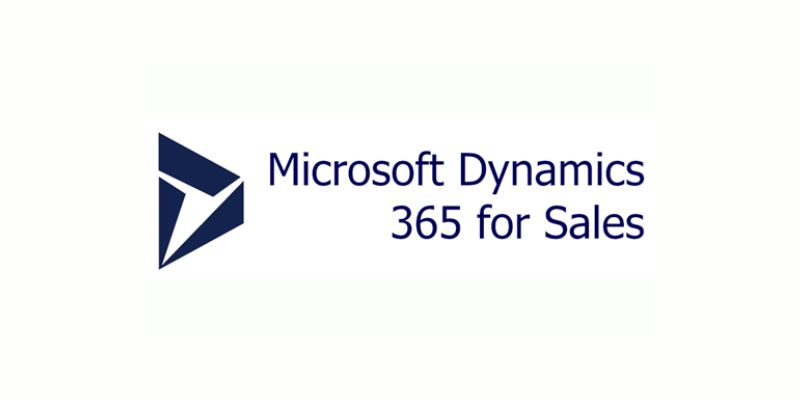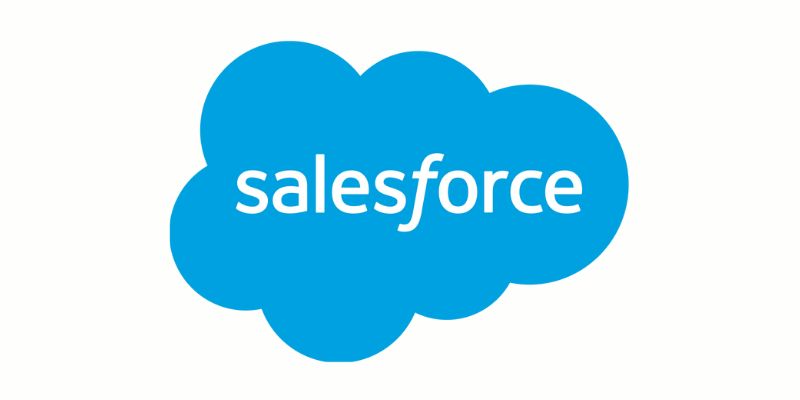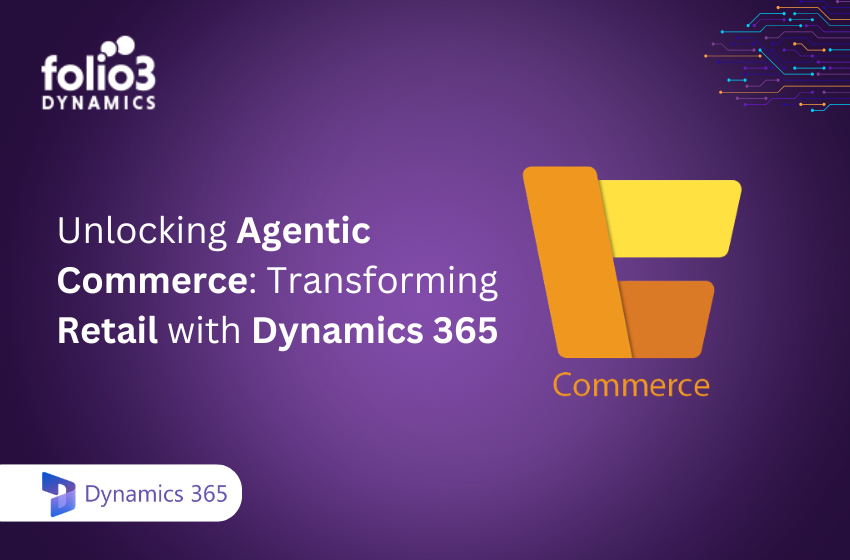Choosing the right customer‑relationship‑management (CRM) system is one of the most important decisions a sales team can make. A modern CRM does much more than store contacts: it automates tasks, provides actionable insights, and integrates with the other systems you rely on.
In 2026, the two biggest contenders remain Microsoft Dynamics 365 Sales and Salesforce Sales Cloud. Both platforms are leaders in Gartner’s CRM Magic Quadrant, and they continue to innovate with AI‑powered capabilities. Yet their architectures, pricing, and strengths differ in meaningful ways. This guide provides a detailed, evidence‑based comparison to help you decide between Dynamics 365 Sales vs Salesforce for your organization.
What is Microsoft Dynamics 365 Sales?
Dynamics 365 Sales is part of Microsoft’s unified business‑application suite. Unlike a standalone CRM, Dynamics 365 combines CRM and enterprise‑resource‑planning (ERP) capabilities. The platform integrates modules for sales, customer service, marketing, finance, and operations into one ecosystem.
The Sales module (sometimes called Dynamics CRM) includes tools for lead management, opportunity tracking, analytics, and transforms sales forecasting across business sizes. Dynamics 365 also offers built-in gamification, product bundling, CPQ (configure‑price‑quote), and strong integration with Microsoft 365 products like Outlook, Teams, and SharePoint.
A major advantage of Dynamics 365 is its modular architecture. Organizations can purchase specific apps (e.g., Sales, Customer Service, Field Service) or bundle them. Microsoft offers cloud and on‑premises deployment options, giving highly regulated industries greater control. Because it shares the same design language as other Microsoft tools, users familiar with the Microsoft ecosystem often find the interface intuitive.
Key Features of Dynamics 365 Sales Plans
Dynamics 365 is purpose-built to help sales leaders drive visibility, collaboration, and pipeline control which you can learn in our CRM guide tailored for sales leaders. Microsoft offers multiple license tiers. Pricing is usually per user per month and may vary by region. In 2026, the core plans as per Microsoft Sales pricing are:
- Dynamics 365 Sales Professional – $65 per user/month, paid annually. This entry‑level tier includes core sales force automation, integration with Microsoft 365, reporting, and dashboards. Sales Professional supports lead and opportunity management, marketing lists and quick campaigns, product bundling, quotes/orders/invoices, and a mobile app. However, customization is limited to 15 custom tables, five business‑process flows, and five dashboards.
- Dynamics 365 Sales Enterprise – $105 per user/month, paid annually. In addition to everything in the Professional plan, Enterprise adds Sales Copilot (AI assistant), forecasting, lead & opportunity scoring, conversation intelligence, and partner relationship management. It also removes most customization limits users can create unlimited tables, workflows, dashboards, and model‑driven apps. Enterprise also includes offline access in the mobile app.
- Dynamics 365 Sales Premium – $150 per user/month, paid annually. This plan bundles Sales Enterprise with Sales Insights (AI add‑ons) for predictive forecasting, pipeline intelligence, relationship analytics, and predictive scoring. It also provides AI‑driven conversation intelligence (three hours per user/month), notes analysis, and an “intelligent worklist” that prioritizes next actions. The built-in Copilot generative AI features are included.
- Microsoft Relationship Sales – price varies and requires at least ten seats. This package integrates LinkedIn Sales Navigator Advanced Plus and advanced AI features. The mobile app and AI tools help sellers identify new prospects and build relationships through LinkedIn.
What is Salesforce Sales Cloud?
Salesforce began as a cloud‑only CRM and has grown into a broad platform with Sales, Service, Marketing, Commerce, and Experience clouds. Its multi‑tenant architecture means all customers use the same underlying system, which eliminates on‑premises deployment but allows frequent updates and scalability. Salesforce’s Lightning interface is modern and highly customizable through drag‑and‑drop components, although it may be less familiar to Microsoft users.
Salesforce is known for its extensive AppExchange marketplace, offering thousands of third‑party integrations and native add‑ons. The company’s Einstein AI platform underpins features like predictive lead scoring, automated workflows, conversation intelligence, and generative AI. Salesforce emphasizes a large user community (Trailblazers) and a broad network of implementation partners.
Key Features of Salesforce Sales Cloud Plans
Salesforce reorganized its pricing in 2026, replacing the previous “Essentials/Professional/Enterprise/Unlimited” structure with suites that bundle AI and data services. Pricing is billed annually unless otherwise noted:
- Starter Suite – $25 per user/month: This simple CRM includes marketing, sales, and service tools. Core features include simplified setup and onboarding, lead/account/contact/opportunity management, and email integration. It is designed for small businesses beginning with CRM.
- Pro Suite – $100 per user/month: This tier adds forecast management, customizable reports and dashboards, and quoting/contracting capabilities.
- Enterprise – $165 per user/month: It includes everything in the Pro Suite plus advanced pipeline management and deal insights, conversation intelligence, and Agentforce, an AI‑driven engagement tool.
- Unlimited – $330 per user/month: It adds predictive AI, conversation intelligence, and sales engagement, plus the Premier Success Plan and a full sandbox for developers.
- Agentforce 1 Sales – $550 per user/month: This top‑tier plan includes everything in Unlimited plus the full Einstein AI suite, unmetered Agentforce usage, and additional products such as Revenue Intelligence, Sales Planning, Salesforce Maps, and Slack Enterprise+.
Dynamics 365 Sales vs Salesforce – Feature Comparison
Both platforms offer comparable baseline CRM capabilities, contact and account management, opportunity tracking, sales forecasting, and workflow automation. The differences lie in how features are delivered, the depth of AI tools, and the ecosystems they integrate with.
Sales Automation and Productivity Tools
|
Aspect |
Dynamics 365 Sales | Salesforce Sales Cloud |
| Lead & opportunity management | Core sales force automation across all plans, including leads, opportunities, quotes, orders, and invoices. Advanced features like lead scoring and predictive forecasting require the Enterprise or Premium plan. |
Core contact and opportunity management are available on all plans; predictive lead scoring and high‑velocity sales features require higher tiers or add‑ons (Sales Cloud Einstein). |
|
Forecasting |
Forecast management is available in Enterprise and above. Premium includes predictive forecasting. | Pro Suite adds forecast management and customisable reports; more advanced AI‑driven forecasting is available in Enterprise and Unlimited tiers. |
| AI and analytics | Sales Copilot (AI assistant) and basic conversation intelligence are included in Enterprise; Premium extends AI capabilities with predictive scoring, relationship analytics, and conversation intelligence (3 hours per user/month). Copilot generative AI is built into Premium. |
Einstein AI powers predictive lead scoring, conversation intelligence, and generative AI. Advanced AI and full sandbox support are included in Unlimited and Agentforce 1 Sales plans. |
|
Integration ecosystem |
Native integration with Microsoft 365 (Outlook, Teams, SharePoint), Power Platform (Power BI, Power Apps, Power Automate), and LinkedIn Sales Navigator. Access to Microsoft’s AppSource for third‑party apps. |
Extensive AppExchange marketplace with thousands of third‑party apps; open APIs allow custom integrations. Salesforce emphasises integration with Slack, Tableau, MuleSoft, and other products. |
|
Customization & development |
Enterprise and Premium plans offer unlimited custom tables, dashboards, and apps. Power Apps can be used to build bespoke apps. On‑premises deployment allows deeper customisations and data control. | Salesforce’s Lightning platform supports drag‑and‑drop customisation and Apex programming. Unlimited plans include full sandbox environments and developer support. Deployment is cloud‑only, limiting self‑hosted customization. |
| Mobile apps | Mobile client available online for all plans; offline mode in Enterprise and above. |
Mobile access is included across all plans, with offline functionality in higher tiers; the app uses Lightning design. |
|
LinkedIn integration |
Premium and Relationship Sales plans include LinkedIn Sales Navigator integration. |
LinkedIn integration is not native; third‑party connectors are available via AppExchange. |
Architecture, UI, and Deployment
- Architecture: Dynamics 365 follows a modular structure that allows organizations to license only the apps they need. It supports cloud or on‑premises deployment. Salesforce is a multi‑tenant cloud platform, so all customers share the underlying infrastructure, and there is no on‑premises option.
- UI: Dynamics 365 uses a familiar Microsoft interface, which can ease adoption for teams that already use Outlook or Excel. Salesforce’s Lightning Experience provides a modern, highly customizable user interface with a steep learning curve but strong configurability.
- Integration: Dynamics 365 offers native integration with Microsoft products like Azure AI, Power BI, and SharePoint, which simplifies reporting and analytics for Microsoft‑centric organizations. Salesforce integrates widely through its AppExchange and APIs; Einstein AI features provide predictive analytics and automation.
- Community & support: Salesforce benefits from a large, active Trailblazer community. Dynamics 365’s community is smaller but offers targeted support and resources.
- Deployment: Dynamics 365 can be hosted in the cloud or on-premises. Salesforce is cloud‑only. Organizations with strict regulatory requirements or limited internet connectivity may prefer Dynamics 365.
Market Adoption and User Satisfaction
Independent reviewers often note that Dynamics 365 and Salesforce share many of the same core features but diverge in cost and customization. The comparison points out that both platforms excel in contact and account management, sales forecasting, and territory management, and both offer their own app marketplaces.
The article stresses that Dynamics 365 shines in customer service management and integrates naturally with Microsoft tools like Outlook and SharePoint. Salesforce is praised for its high degree of flexibility and customisation via advanced workflows and personalized configurations.
In terms of pricing, Dynamics 365 often has a lower per‑user subscription cost, but the difference can become meaningful over multiple users for years. Implementation and training costs typically make Salesforce’s total cost of ownership higher. Both platforms usually require eight–twelve weeks for implementation.
Pricing Comparison – Dynamics 365 Sales vs Salesforce
The tables below summarize the pricing information from official vendor sources and independent reports for U.S. customers. Prices may vary by region and are subject to change.
Dynamics 365 Sales Pricing
|
Plan (license) |
Monthly cost | Included capabilities |
| Sales Professional | $65/user |
Core sales automation, integration with Microsoft 365, reporting, and dashboards. Limited customization (15 custom tables, five process flows) and mobile app (online only). |
|
Sales Enterprise |
$105/user | Includes all Professional features plus Sales Copilot, forecasting, lead scoring, conversation intelligence, and partner relationship management. Unlimited customization and offline mobile access. |
| Sales Premium | $150/user |
Everything in Enterprise plus Sales Insights (predictive forecasting, pipeline intelligence, relationship analytics, AI-driven scoring, conversation intelligence with call transcription). Copilot generative AI features included. |
|
Microsoft Relationship Sales |
Variable price |
Sales Enterprise plus LinkedIn Sales Navigator Advanced Plus and advanced AI features; requires a minimum of 10 seats. |
Salesforce Sales Cloud Pricing
|
Plan |
Monthly cost (USD) | Included capabilities |
| Starter Suite | $25/user |
Simple CRM for marketing, sales, and service with lead/opportunity management, email integration, and simplified onboarding. |
|
Pro Suite |
$100/user | Adds forecast management, customizable reports/dashboards, quoting, and contracting. |
| Enterprise | $165/user |
Includes everything in Pro Suite plus advanced pipeline management & deal insights, conversation intelligence, and Agentforce (AI for seller engagement). |
|
Unlimited |
$330/user | Adds predictive AI, conversation intelligence, and sales engagement, plus the Premier Success Plan and full sandbox environment. |
| Agentforce 1 Sales | $550/user |
All Unlimited features plus the full Einstein AI suite, unmetered Agentforce usage, Revenue Intelligence, Sales Planning, Salesforce Maps, Slack Enterprise+, 1 million Flex credits, and 2.5 million Data Cloud credits per year. |
Independent reports highlight that Salesforce offers a lower entry price for simple CRM needs but quickly becomes expensive as advanced AI features and add‑ons are added. Dynamics 365’s entry tier is higher than Salesforce’s Starter Suite, but its mid‑range plans cost less than Salesforce Enterprise or Unlimited.
Implementation, Integration and Customization
Implementation Timeline
Both systems typically require 8–12 weeks for implementation, although the scope of the project can extend this timeline. However, Dynamics 365 may benefit from faster setup for organizations already using Microsoft 365, whereas Salesforce may need more planning if advanced automation or custom integrations are required.
Integration Ecosystem
- Dynamics 365 Sales integrates natively with Microsoft 365, Power BI, Power Apps, Power Automate, and LinkedIn. The platform also uses Dataverse for data storage and is extensible via Power Platform; this makes it easier for organisations to build custom apps and automate processes using low‑code tools. Dynamics 365 can integrate with third‑party apps through Microsoft’s AppSource marketplace and supports REST APIs.
- Salesforce has the AppExchange, an extensive marketplace of thousands of third‑party applications and connectors. Salesforce also offers robust APIs, including REST, SOAP, and GraphQL, along with integration tools like MuleSoft (for enterprise integration) and Slack. Its Einstein AI features can integrate with data from external systems to provide predictive analytics and generative AI capabilities.
Customization and Flexibility
Dynamics 365 Sales Enterprise and Premium plans support extensive customization. Users can create unlimited custom tables, workflows, dashboards, and model‑driven apps within the same environment. Power Apps allows low‑code creation of custom modules, while Power Automate offers no‑code workflow automation. Organizations can also host Dynamics 365 on‑premises for deeper customization and data residency requirements.
Salesforce’s Lightning platform offers a highly customizable interface with drag‑and‑drop components. Developers can extend functionality using Apex (Salesforce’s proprietary programming language) and create custom applications. The Unlimited and Agentforce tiers include a full sandbox environment for testing new features and custom code.
AI and Analytics: Copilot vs Einstein
Both Microsoft and Salesforce have invested heavily in AI to enhance the seller experience.
- Dynamics 365 Copilot and Sales Insights: Sales Copilot offers generative AI that can draft emails, summarize meetings, and suggest next actions. Sales Insights provides predictive scoring, relationship analytics, conversation intelligence and an intelligent worklist. Copilot is included in the Sales Premium license and uses Microsoft’s Azure AI models.
- Salesforce Einstein and Agentforce: Einstein includes predictive lead scoring, conversational AI, automated workflows, and generative capabilities. High‑tier plans like Unlimited and Agentforce 1 Sales include the full Einstein AI suite, performance management, Data Cloud, and Revenue Intelligence. Salesforce’s generative AI features are integrated across CRM functions; additional data storage is provided in Agentforce 1 Sales.
Pricing & Licensing Considerations
When evaluating Salesforce vs Microsoft Dynamics Sales pricing, consider the following factors:
- Base licence plus required add‑ons: Salesforce’s entry plan is inexpensive but lacks advanced functionality; adding AI, analytics, service, or marketing features typically requires higher‑tier plans or extra licences. Dynamics 365 tiers are more straightforward, Sales Enterprise and Premium include most AI features, and organizations can buy add-on licences at a discount via attach licences.
- Implementation and training costs: Both platforms often require professional services. The implementation projects usually start around US$15,000 for Dynamics 365 and have similar costs for Salesforce. However, Salesforce’s higher subscription price means the total cost of ownership can be higher over several years.
- User adoption and familiarity: Organizations already using Outlook, Teams, and Power BI may find Dynamics 365 easier to adopt. Conversely, companies with existing Salesforce expertise or those needing extensive customization may prefer Salesforce’s Lightning platform and AppExchange.
- Data residency and compliance: Dynamics 365’s on‑premises option can be critical for industries with strict data residency requirements. Salesforce customers must adopt a cloud‑only model, though Salesforce provides strong security and compliance certifications.
- Scalability: Both platforms scale well. Salesforce’s multi‑tenant architecture allows for seamless updates and expansion. Dynamics 365’s modular approach lets organizations start with one app and attach others as needed.
Which CRM Should You Choose in 2026?
Both Dynamics 365 Sales and Salesforce Sales Cloud are market‑leading CRMs with broad functionality. Choosing between them depends on your organization’s priorities.
- Choose Dynamics 365 Sales if you are heavily invested in the Microsoft ecosystem, require on‑premises deployment, or need seamless integration with tools like Outlook, Excel, Teams, or Power BI. Its Sales Enterprise and Premium tiers provide powerful AI tools at a lower price than Salesforce’s equivalent AI‑driven tiers. The platform’s modular licensing and attach options let you start small and expand as needed.
- Choose Salesforce Sales Cloud if you prefer a cloud‑native platform with a massive app marketplace, require advanced customization through Apex, and want access to cutting‑edge AI capabilities like Einstein Copilot and Revenue Intelligence. Salesforce’s low entry price makes it attractive for small businesses, but costs rise quickly as additional features are added.
Achieve the Maximum Sales Success with a Trusted Microsoft Partner
As businesses weigh the pros and cons of Dynamics 365 Sales vs Salesforce, the choice ultimately depends on your existing tech stack, customization needs, and budget. For companies looking to maximize their investment in Microsoft technologies, Dynamics 365 Sales offers deep integration, powerful AI, and scalability, all backed by Microsoft’s cloud ecosystem. That’s where Folio3 Dynamics comes in.
As a Gold Microsoft Dynamics Partner, we specialize in helping businesses like yours unlock the full potential of Dynamics 365 Sales with expert implementation, customization, and ongoing support.
Our core offerings include:
- End-to-end implementation of Dynamics 365 Sales tailored to your business needs
- Seamless integration with Microsoft 365, Power BI, Teams, Outlook & LinkedIn
- Custom workflow automation and AI-powered sales forecasting solutions
- Migration from legacy CRM systems, including Salesforce
- Ongoing support, training, and system optimization
Ready to transform your sales operations? Contact Folio3 Dynamics Today and let’s accelerate your CRM journey.




